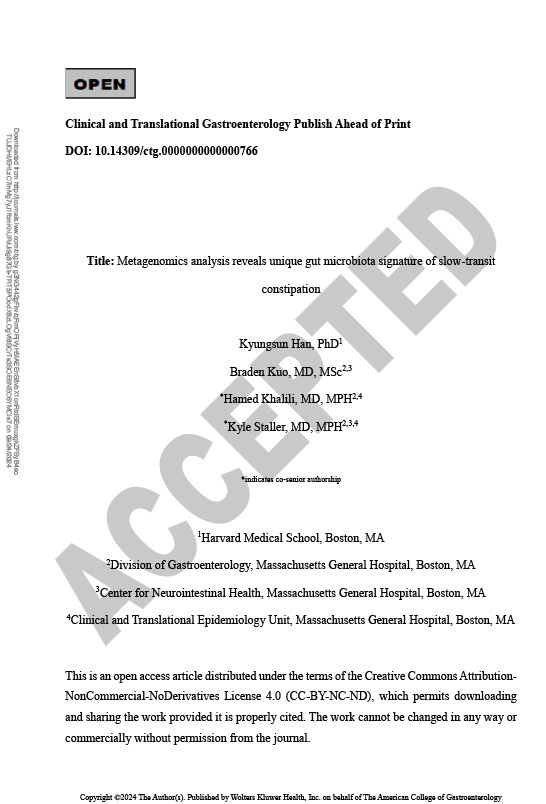Metagenomics analysis reveals unique gut microbiota signature of slow-transit constipation
September 2024
Abstract
Introduction: Altered gut microbiota may play a role in slow-transit constipation (STC). We conducted a study of gut microbiota composition and functionality in STC using metagenomic analyses.
Methods: We assembled a clinical cohort of 24 patients with STC physiology age- and sex-matched to 24 controls. We performed shotgun metagenomic sequencing followed by prediction of metabolite composition from functional profiles.
Results: In a middle-aged (mean 55.3 years), predominantly female cohort, there were no significant differences in α diversity indices, but permutational multivariate analysis of variance analysis showed significant between-group differences (R2=0.050, p<0.001) between STC patients and controls. Gordonibacter pamelaeae, Bifidobacterium longum, Firmicutes bacterium CAG 94, and Anaerotruncus colihominis were more abundant in STC, while Coprococcus comes and Roseburia intestinalis were more abundant in controls. Gut-derived metabolites varying in STC relative to controls were related to bile acid and cholesterol metabolism.
Discussion: We found a unique metagenomic and metabolomic signature of STC.

